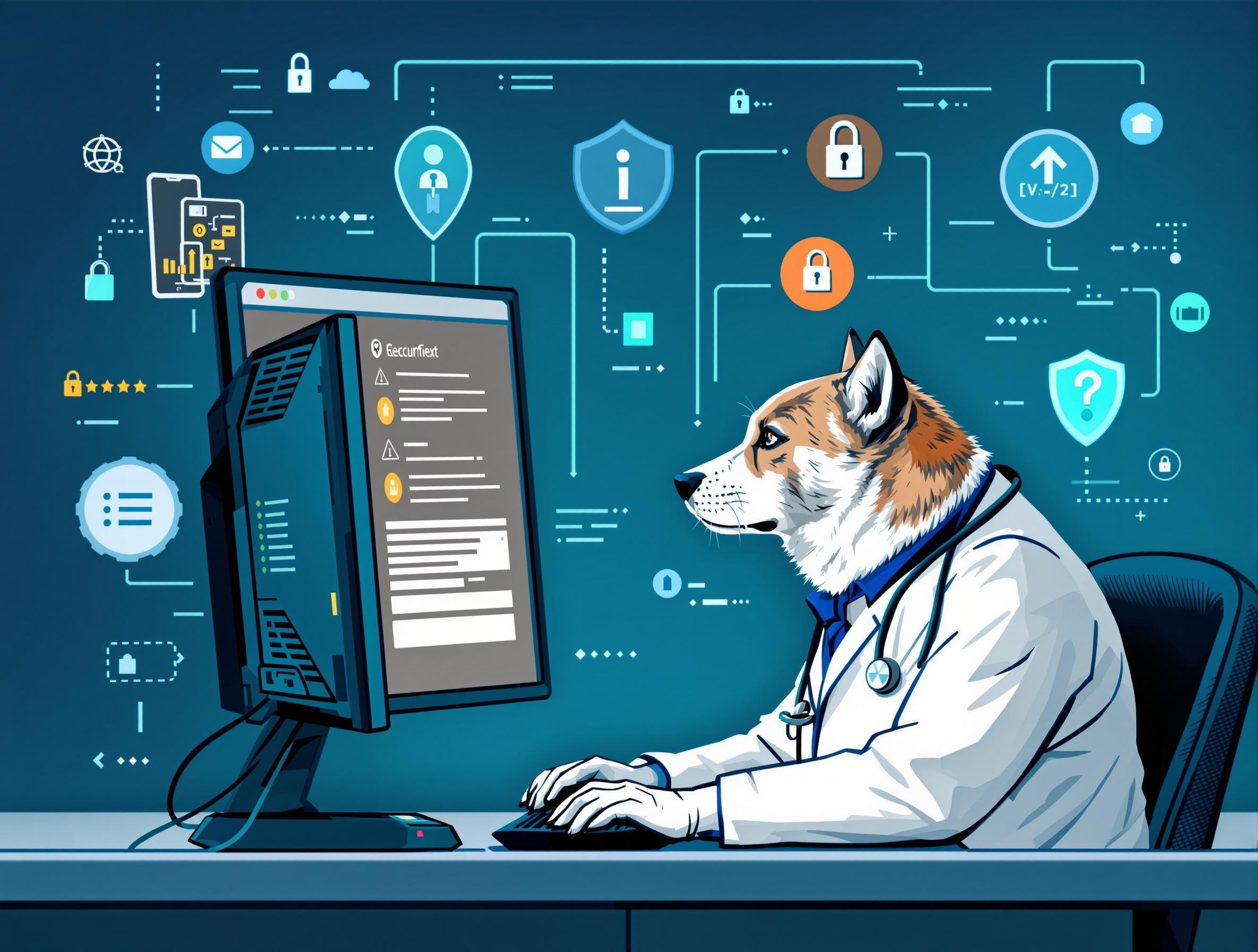
Cybersecurity Essentials for Modern Veterinary Clinics: Protecting Data & Clients
In today’s digital landscape, veterinary clinics are more connected than ever, relying on technology for everything from appointment scheduling to medical recordkeeping. While these advances boost efficiency and client service, they also introduce new cybersecurity risks. Protecting sensitive data—both for your clients and your business—isn’t just a best practice; it’s essential.
Let’s break down the most critical cybersecurity essentials every veterinary clinic should implement in 2025.
1. Understand the Threat Landscape
Veterinary clinics, like other healthcare providers, are prime targets for cybercriminals. Why? Because you store valuable data: client contact information, payment details, and confidential medical records. Ransomware, phishing, and data breaches are increasingly common.
Key Takeaway:
Assume your clinic is a target and take proactive steps to minimize risk.
2. Implement Strong Password Practices
Weak or reused passwords are a common entry point for attackers. Every staff member should use complex, unique passwords for each system or application. Consider implementing a password manager to securely store and generate passwords.
Tip:
Require multi-factor authentication (MFA) wherever possible for an extra layer of protection.
3. Keep Software and Systems Updated
Cybercriminals exploit vulnerabilities in outdated software and operating systems. Regularly update all computers, tablets, and network devices. Enable automatic updates for your practice management software, antivirus, and operating systems.
Tip:
Schedule monthly maintenance checks to ensure all devices are up-to-date.
4. Invest in Endpoint Protection
Every device that connects to your network—computers, tablets, even smart equipment—should have robust endpoint protection. Look for solutions that include antivirus, anti-malware, and real-time threat monitoring.
Tip:
Work with an IT provider who can monitor and manage endpoint security across your clinic.
5. Train Your Staff on Cybersecurity Awareness
Your staff is your first line of defense. Regular training helps employees recognize phishing emails, suspicious links, and social engineering tactics. Run simulated phishing campaigns and provide clear reporting procedures for potential threats.
Tip:
Hold bi-monthly cybersecurity awareness training sessions and keep everyone in the loop about new scams.
6. Secure Your Network
A secure network is foundational. Use strong, unique passwords for Wi-Fi, segment guest and staff networks, and use firewalls to control traffic. Avoid using default credentials on any device.
Tip:
Change Wi-Fi passwords regularly and restrict access to sensitive systems.
7. Back Up Data Routinely
Data loss due to cyberattacks or hardware failure can be devastating. Implement automated, encrypted backups for all critical data—both on-site and in the cloud. Test your backups regularly to ensure they’re working.
Tip:
Schedule monthly disaster recovery tests and keep backup reports on file.
8. Have an Incident Response Plan
Even with the best defenses, incidents can happen. Prepare a clear response plan: who to notify, how to isolate affected systems, and steps for recovery. Practice your plan so your team knows what to do under pressure.
Tip:
Partner with IT professionals who can guide you through incident response and recovery.
9. Protect Client Payment Information
If you process payments, ensure your systems are PCI-DSS compliant. Use secure, encrypted payment terminals and never store credit card details in unsecured locations.
Tip:
Conduct regular compliance reviews with your payment processor or IT provider.
10. Stay Informed
Cyber threats evolve quickly. Subscribe to cybersecurity updates from trusted sources and review your clinic’s security posture regularly.
Tip:
Follow industry news and partner with an IT provider who keeps you up-to-date on the latest threats.
Conclusion
Cybersecurity isn’t a one-time project—it’s an ongoing commitment. By following these essentials, veterinary clinics can protect sensitive data, maintain client trust, and keep operations running smoothly.
Don’t leave your clinic exposed to cyber threats. Contact Omega Tecks today for a cybersecurity risk assessment tailored to veterinary practices.



